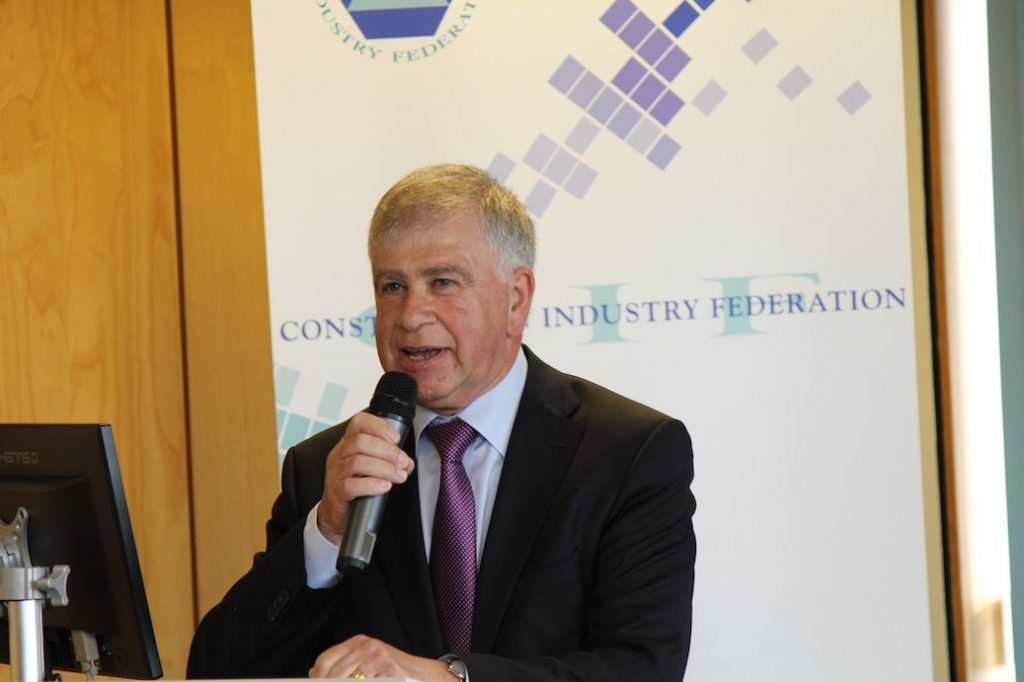Strong Management Team Facilitating Kirby’s Expansion into New Markets
Jimmy Kirby, Group Managing Director, Kirby Group Engineering, talks strategy and leadership philosophy with Carol Tallon.
Kirby Group’s management team focused on positioning the company to avail of new opportunities in order to create growth over the past decade.
“We focused our services on new sectors and geographical locations while also looking for new customers in our existing sectors”, Jimmy Kirby says. “A key part of this was strengthening our mechanical services offering as well as qualifying new geographical locations.”
Entering New Markets
Exporting technical expertise during the downturn was a successful strategy for some larger Irish contractors, but it certainly had its challenges.
“In the UK, initially the sectors we focused on were pharmaceutical, industrial manufacturing and power”, says Jimmy Kirby. “Originally, we were invited in by one of our large multinational power sector customers to deliver projects for them; then we expanded into the other sectors.
“One of the early challenges we encountered with this was relocating our people”, Jimmy Kirby points out. “This required strong leadership as we needed our own key people to get these projects delivered. This was necessary in order to build a sustainable future in these markets.”
The company recently announced the expansion in its international operations to include the new geographical area of the Nordics.
“Expansion into the Nordic market is proving to be successful for us, having secured and delivered new data centre projects, with more projects in the pipeline,” says Jimmy Kirby.
Kirby Group currently has the capability to execute projects in Ireland, UK, Sweden, Finland, Denmark, Netherlands and Belgium. To meet growing demand for its services, the company is also developing the capability to execute projects in Norway, Germany, Switzerland and Luxembourg.
Skills Shortage
The skills shortage is a major industry problem, which can act as a constraint on sustainable growth. It is interesting to note that even during the downturn when exporting became a key feature of Irish specialist contractors’ success, retaining talented teams through relocation was a challenge. Fast forward 10 years and a part of Kirby’s focus is on the new geographic markets and sectors within.
“The first step of breaking into the new markets involved strengthening our management team to take on existing and new opportunities”, Jimmy Kirby says. “We recently appointed a new group business development director, Aidan J Kerins; and a new operations director, Henry McCann and associate director, Alan McHugh, for our power transmission and distribution service, both of whom were promoted from within the company.”
When discussing the current and changing nature of the business environment and the construction sector in 2018, Jimmy Kirby contends that the challenges are not so different to those encountered a decade ago.
“The primary objective of the company is to secure the projects and the associated revenue required in a financial year, along with talent recruitment and strengthening the required supply chain.”
Tendering & Costs
When it comes to the competitive nature of tendering, Jimmy Kirby says he has noticed that this is a cross-sector trend in all of the markets in which they operate.
“While perhaps price is the deciding factor in bid evaluation”, he explains, “customers we work with all have their own business cases, and they have a budget that they need to work to. They also need to get the project done, so they are looking for value through safe delivery, relevant experience and integrity.”
Jimmy Kirby concludes by saying that in terms of managing costs, with certain factors outside the control of the contractor, “Keeping our operating costs from escalating is an area where good business skills can have a real impact. We are confident about the future of the company, due to the strength of our management team and the people within the company, to take on the opportunities and challenges that lie ahead, including operating costs, and in doing so achieve our purpose.”


